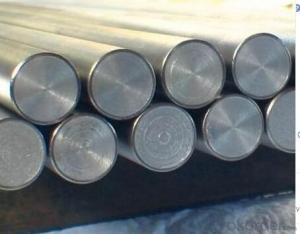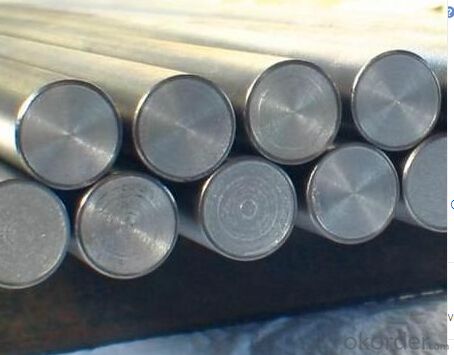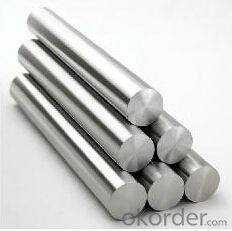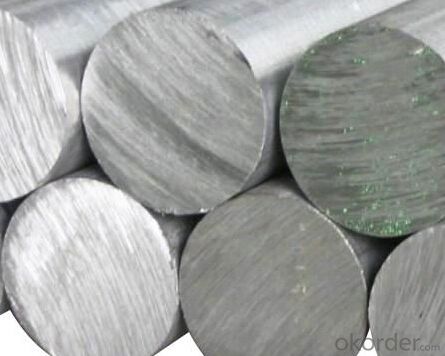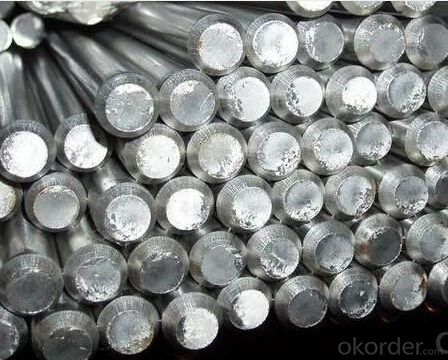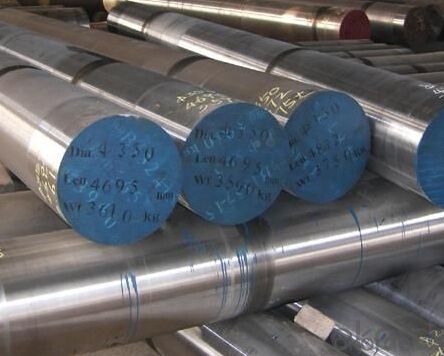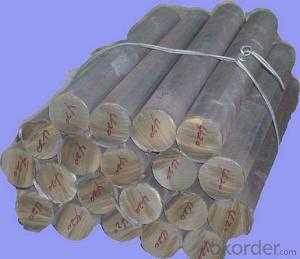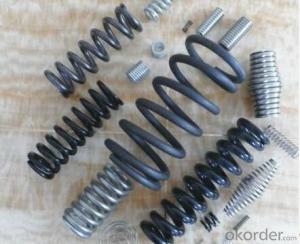ISO9001 Certificate Precision Compression Spring
- Loading Port:
- Tianjin
- Payment Terms:
- TT or LC
- Min Order Qty:
- 1000 m.t.
- Supply Capability:
- 50000 m.t./month
OKorder Service Pledge
OKorder Financial Service
You Might Also Like
Product Description:
OKorder is offering ISO9001 Certificate Precision Compression Spring at great prices with worldwide shipping. Our supplier is a world-class manufacturer of steel, with our products utilized the world over. OKorder annually supplies products to European, North American and Asian markets. We provide quotations within 24 hours of receiving an inquiry and guarantee competitive prices.
Product Applications:
ISO9001 Certificate Precision Compression Spring are ideal for structural applications and are widely used in the construction of buildings and bridges, and the manufacturing, petrochemical, and transportation industries.
Product Advantages:
OKorder's ISO9001 Certificate Precision Compression Spring are durable, strong, and resist corrosion.
Main Product Features:
· Premium quality
· Prompt delivery & seaworthy packing (30 days after receiving deposit)
· Corrosion resistance
· Can be recycled and reused
· Mill test certification
· Professional Service
· Competitive pricing
Product Specifications:
Specifications of ISO9001 Certificate Precision Compression Spring:
ISO9001 certificate
Wire diameter: 0.15mm to 7.0mm
Material: stainless steel, swc,swp
Engine valve spring
We have the CNC computer spring machine, non-cam and non-rocker, independent control by multiple servo motor, which can produce the biggest diameter spring. Fast production, precision positioning, steady operation. | |
Wire diameter: | 0.08mm-10mm. Size and style are made by drawings. |
Materials: | adopt the domestic and imported swc, sus, swp, mild steel wire, manganese steel wire, phosphorus copper wire, nickel-plated wire, zinc-plated wire, tin-plated copper wire, nickel-plated steel wire, non-magnetic stainless steel wire, heat-resistant steel wire, duplex stainless steel wire(corrosion resistant and heat resistant steel wire), bronze, copper, phosphorus copper, beryllium copper. Alloy steel has 60Si2MNA, 60Si2CRVA, 55CrSi. |
Surface treatment: | plate gold, silver, white, red yellow, blue, green, purple, black, etc., salt spray test more than 100 H. Appearance beautiful and bright. |
Application: | electronics, electrical appliances, toys, locks, stationery, furniture, washing machines, vacuum cleaners, lamps and lanterns, stroller, bicycle, gift, handicraft, gifts, cameras, printers, office equipment, precision equipment, all kinds of transportation, car accessories, sports equipment, switches, sockets, water heater, calculator, watches, ignition, mouse, motor, mobile phone, mementoes, fan, video DVD, etc |
Usage/Applications
We import the most sophisticated computer compression spring machine from Taiwan; it can do 100 percent inspection to spring length, which ensured the spring quality stable and precise
Widely used in automobiles, motorcycles, electrical appliances, telecommunication, communication, aviation, space and other civil fields
Packaging & Delivery
Inner packing: plastic or PE bags
Outer packing: corrugated cartons, wooden boxes or pallets
Testing equipment
We have a andvanced testing equipment to gueranteen the good quanlity of our products.
FAQ:
Q1: Why buy Materials & Equipment from OKorder.com?
A1: All products offered byOKorder.com are carefully selected from China's most reliable manufacturing enterprises. Through its ISO certifications, OKorder.com adheres to the highest standards and a commitment to supply chain safety and customer satisfaction.
Q2: How do we guarantee the quality of our products?
A2: We have established an advanced quality management system which conducts strict quality tests at every step, from raw materials to the final product. At the same time, we provide extensive follow-up service assurances as required.
Q3: How soon can we receive the product after purchase?
A3: Within three days of placing an order, we will begin production. The specific shipping date is dependent upon international and government factors, but is typically 7 to 10 workdays.
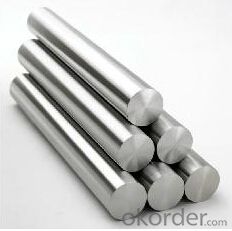
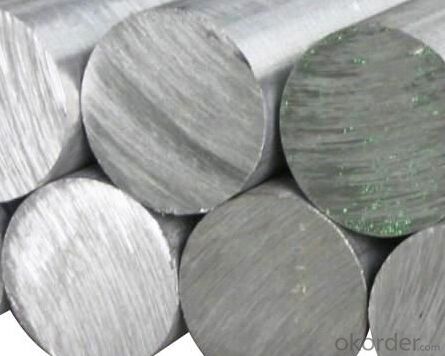
- Q: What are the properties of carbon steel?
- Carbon steel is a type of steel that primarily consists of iron and carbon, with trace amounts of other elements. It is known for its high strength, durability, and ability to be easily shaped, making it suitable for a wide range of applications. It exhibits excellent hardness and wear resistance, while also being relatively low-cost compared to other types of steel. Carbon steel can be further classified based on its carbon content, with higher carbon levels providing increased hardness and strength. Additionally, it is susceptible to corrosion and requires proper maintenance to prevent rusting.
- Q: How does special steel perform in extreme weather conditions?
- Special steel is designed to perform exceptionally well in extreme weather conditions. It has high resistance to corrosion, which means it can withstand exposure to harsh elements such as rain, snow, and saltwater without deteriorating. Additionally, special steels exhibit excellent strength and toughness, allowing them to maintain their structural integrity even in extreme temperatures, such as intense heat or freezing cold. Overall, special steel is a reliable and durable material that excels in challenging weather environments.
- Q: What are the environmental considerations of using special steel?
- There are several environmental considerations associated with the use of special steel. Firstly, the production of special steel involves the extraction and processing of raw materials, which can have significant environmental impacts. The mining of iron ore and other minerals required for steel production often results in habitat destruction, soil erosion, and water pollution. Additionally, the energy-intensive processes used to convert raw materials into steel emit large amounts of greenhouse gases, contributing to climate change. Furthermore, the disposal of special steel products at the end of their life cycle can also pose environmental challenges. Steel is a non-renewable resource, and its disposal in landfills can contribute to waste accumulation and resource depletion. However, steel is highly recyclable, and recycling steel products can significantly reduce the environmental impact associated with their disposal. In terms of transportation, special steel is often heavy and bulky, which leads to higher fuel consumption during transportation. This can contribute to air pollution and carbon emissions, particularly if long-distance shipping is involved. Moreover, the manufacturing processes used to produce special steel can generate various types of waste, such as slag and dust, which need to be properly managed to prevent negative environmental impacts. The treatment and disposal of these waste materials require careful consideration to ensure they do not contaminate soil, water, or air. To mitigate these environmental considerations, companies in the steel industry have been adopting more sustainable practices. This includes investing in cleaner technologies, such as electric arc furnaces that use recycled steel as feedstock, to reduce energy consumption and emissions. Additionally, implementing efficient waste management systems and promoting steel recycling can help minimize waste generation and resource depletion. Overall, while the use of special steel has undeniable benefits in various industries, it is crucial to consider and address the associated environmental impacts. Adopting sustainable practices throughout the entire lifecycle of special steel, from raw material extraction to end-of-life disposal, is vital in minimizing its environmental footprint and promoting a more sustainable future.
- Q: What are the different forms of special steel?
- There are several different forms of special steel, including stainless steel, tool steel, high-speed steel, and alloy steel.
- Q: How does special steel perform in terms of wear resistance?
- Special steel is known for its exceptional wear resistance, making it highly durable and long-lasting even under harsh conditions. It exhibits superior resistance to abrasion, erosion, and impact, allowing it to withstand heavy usage and minimize wear and tear. This characteristic makes special steel an excellent choice for applications where wear resistance is crucial, such as in the manufacturing of tools, machinery, and automotive components.
- Q: Can special steel be used in the wind turbine manufacturing industry?
- Yes, special steel can be used in the wind turbine manufacturing industry. Special steel, such as high-strength low-alloy (HSLA) steel or advanced high-strength steel (AHSS), is often utilized in the construction of wind turbine components due to its superior mechanical properties, including high strength, corrosion resistance, and durability. These properties make special steel an ideal material choice for wind turbine manufacturers as it helps enhance the overall performance and lifespan of the turbines.
- Q: How is wear-resistant steel used in mining equipment?
- Wear-resistant steel is commonly used in mining equipment due to its high durability and strength. It is utilized in various applications such as excavator buckets, crusher liners, and conveyor parts to withstand the harsh conditions of mining operations. The wear-resistant properties of this steel help to minimize abrasion and extend the equipment's lifespan, resulting in increased productivity and reduced maintenance costs.
- Q: What are the future trends and innovations expected in special steel production?
- The special steel production industry is anticipated to undergo significant changes in the future. Several trends and innovations will shape this industry, and the following key areas are expected to see advancements: 1. Advanced Manufacturing Techniques: Special steel manufacturers will likely adopt advanced manufacturing techniques, such as additive manufacturing (3D printing) and digitalization. These technologies will facilitate the production of complex geometries, minimize waste, and allow for customization of special steel products. 2. Sustainable Production: Due to growing environmental concerns, there will be a focus on sustainable production methods in the special steel industry. This will involve adopting energy-efficient processes, recycling and reusing materials, and reducing the carbon footprint of steel production. 3. High-Strength and Lightweight Alloys: The demand for lightweight materials in sectors like automotive and aerospace will drive special steel production towards developing high-strength and lightweight alloys. These alloys will enhance performance while reducing component weight, leading to improved fuel efficiency and sustainability. 4. Nanotechnology and Microstructural Engineering: Nanotechnology and microstructural engineering will enhance the properties of special steels. By manipulating materials at the nanoscale, manufacturers can improve strength, toughness, corrosion resistance, and other characteristics. 5. Enhanced Surface Treatments: Advancements in surface treatments, such as coatings, will improve the performance and longevity of special steel products. Innovative surface treatments will offer increased resistance to wear, corrosion, and heat, expanding the range of applications for special steels. 6. Digitalization and Data Analytics: Special steel production will undergo a revolution with the integration of digital technologies and data analytics. Smart factories with interconnected systems will enable real-time monitoring, predictive maintenance, and improved quality control, resulting in higher productivity and efficiency. 7. Automation and Robotics: Automation and robotics will continue to play a vital role in special steel production, optimizing productivity, reducing human errors, and improving worker safety. This will enhance overall operational efficiency. 8. Industry 4.0 Integration: The special steel industry will embrace Industry 4.0 principles, including the Internet of Things (IoT) and artificial intelligence (AI). These technologies will enable seamless connectivity, intelligent decision-making, and predictive analysis, leading to improved productivity, cost-effectiveness, and competitiveness. In conclusion, the future of special steel production will be shaped by advancements in manufacturing techniques, sustainable practices, material engineering, digitalization, and automation. These innovations will not only enhance the performance and quality of special steel products but also contribute to a more sustainable and efficient industry.
- Q: What are the requirements for special steel used in chemical processing?
- The requirements for special steel used in chemical processing include high corrosion resistance, exceptional strength and durability, resistance to high temperatures and extreme pressure, and compatibility with the specific chemicals being processed.
- Q: What are the different methods of improving the toughness of special steel?
- There are several methods of improving the toughness of special steel. One common method is through heat treatment, such as quenching and tempering, which involves rapidly cooling the steel to increase its hardness and then reheating it to improve its toughness. Another method is alloying, where elements like nickel, chromium, and molybdenum are added to the steel to enhance its toughness. Additionally, refining the steel's microstructure through processes like grain-size control and precipitation hardening can also improve its toughness.
Send your message to us
ISO9001 Certificate Precision Compression Spring
- Loading Port:
- Tianjin
- Payment Terms:
- TT or LC
- Min Order Qty:
- 1000 m.t.
- Supply Capability:
- 50000 m.t./month
OKorder Service Pledge
OKorder Financial Service
Similar products
Hot products
Hot Searches
Related keywords
